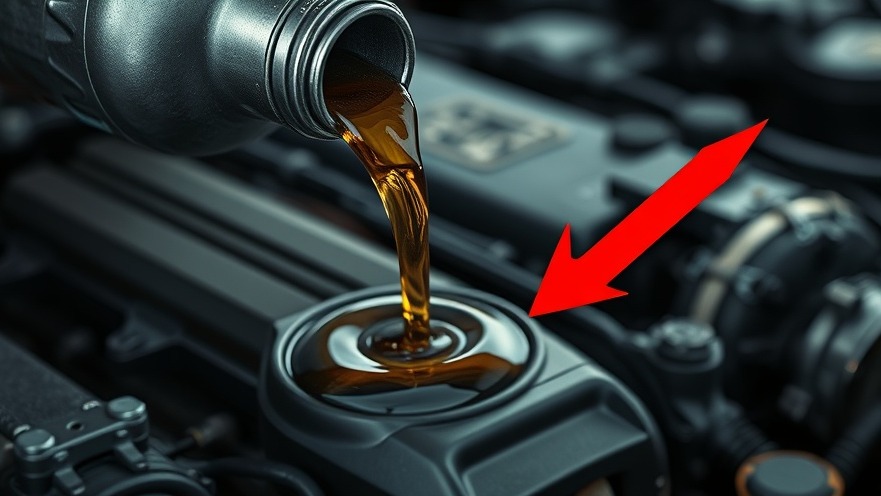
Understanding Engine Oil: What You Need to Know
All engine oils are not created equal, and using the wrong type can lead to serious damage and costly repairs for your vehicle. In the recent video titled A SERIOUS Warning to All Car Owners, AVOID Using This Engine Oil Right Now!, critical insights were shared about the common mistakes car owners make regarding engine oil usage. Let’s take a deeper look into these concepts, helping you to ensure your car runs efficiently and stays healthy for the long haul.
In A SERIOUS Warning to All Car Owners, AVOID Using This Engine Oil Right Now!, the video discusses critical insights on engine oil mistakes and the repercussions these can have on your vehicle. We’re diving deeper into these concepts to ensure your car runs efficiently and stays healthy.
The Dangers of Mixing Oils: A Common Misconception
One prevalent myth among drivers is that mixing synthetic and conventional oils will harm your engine. Fortunately, modern engine oils are designed to be compatible, making it safe to switch from one type to another as long as you follow your car's manual recommendations. However, it remains essential to consistently monitor the type of oil you’re using to avoid any long-term ramifications.
Why More Additives Aren't Always Better
Drivers often believe that adding extra detergents and additives to engine oil will enhance its performance. In reality, today's motor oils already contain a carefully balanced mix of additives optimized to protect your engine. Overloading your oil can cause it to thicken, leading to sludge build-up, which impairs engine performance rather than enhances it.
The Perils of Low-Quality Oil
Using a low-quality oil is a quick route to engine damage. During intense heat, these oils tend to break down faster, leading to increased oil consumption and raising the risk of mechanical problems. Opting for high-quality options ensures that your engine operates under optimal conditions, especially in tough driving situations.
Understanding Oil Viscosity: It’s Not Always About Thickness
Many car owners mistakenly believe that thicker oil is better for their engines, especially if they are dealing with noisy components or older engines. However, it comes down to using the right viscosity for your specific vehicle. Oil that is too thick can impede circulation, particularly in colder weather, while oil that is too thin may break down and fail in high heat.
Recognizing Dangerous Signs in Engine Oil
When checking your oil, don’t just rely on color. Dark oil often signifies that the oil is doing its job by capturing dirt and contaminants. However, milky, foamy, or gritty oil definitely indicates a problem that warrants immediate attention. Being vigilant about the quality of your oil can save you time and money on repairs.
Choosing the Right Engine Oil: Key Factors
Selecting the appropriate oil for your vehicle can bolster performance and longevity. Here is what you need to consider:
Synthetic motor oil: It offers superior protection at various temperatures and prevents breakdown, keeping your engine cleaner.
Multi-grade oils: They perform well in all seasons, ensuring consistent protection.
High-quality oil with strong filtration: Essential for maintaining engine cleanliness and efficiency.
Fuel-efficient oil: These oils can significantly reduce fuel consumption, benefiting both your wallet and the environment.
Heat-resistant oil: Crucial for engines that experience extreme conditions.
Extended mileage motor oil: Designed to last longer, maintain efficiency, and lower the frequency of oil changes.
OEM approved oils: These oils are specifically made to meet manufacturer specifications, ensuring compatibility and performance.
Making Informed Choices
Understanding engine oil is essential for maintaining your vehicle effectively. Following the guidelines shared in the video, you can ensure that you choose the right motor oil to protect your engine from unnecessary wear and tear. Remember that regular maintenance extends not just your engine's life but also improves fuel efficiency and reduces emissions.
If you want to keep up with regular maintenance and reduce repair costs, watching our next video will provide you with insider knowledge on optimizing your car performance.
 Add Row
Add Row  Add
Add 




Write A Comment